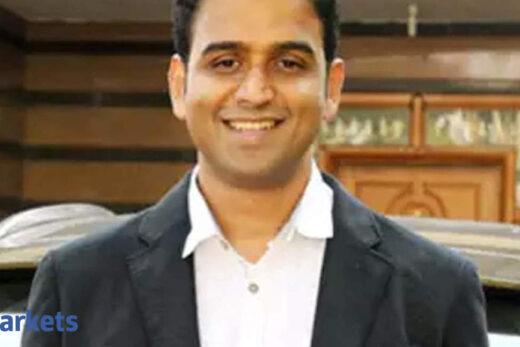Half-a-dozen new-age digital companies such as Easy Trip Planners, Zomato, CarTrade, Nykaa, PolicyBazaar and Paytm launched their initial public offerings (IPOs) successfully in the last four months. These six companies have added nearly Rs 4.37 lakh crore ($58 billion) in market capitalisation so far. That, though, is just one-third of the market capitalisation of India’s largest IT company Tata Consultancy Services (TCS), which boasts Rs 13.04 lakh crore.
Is history repeating itself? Or, are there significant differences between the IPO bonanza of the new tech and the boom in the IT services companies in the late 1990s that created the giants that are now rather patronisingly referred to as the old tech? It took, for instance, 13 years for Infosys to reach Rs 1 lakh crore market capitalisation in 2006 after its listing in 1993. Zomato and Nykaa hit that benchmark on the first day itself.
According to market experts, an influx of new-age digital companies will change the Indian stock markets in a big way. They will bring in new products and a new set of retail investors — mostly youngsters. Over time, some of these companies may end up becoming behemoths like Infosys or TCS. For now, though, they are nowhere near the biggies of Indian IT.
CHANGING THE MARKET
New-age digital companies account for only around 1 per cent of India’s market cap, compared with about 25 per cent in the US and 15 per cent in China. As more such companies get listed, the market cap may rise to around 15 per cent by 2027, according to analysts.
“We expect India to host 150-plus unicorns over the next three to five years. Even if 20-25 per cent of these unicorns take the listing route, we could easily add anywhere between $300 billion and $500 billion of market cap,” says Raj Balakrishnan, head of India Investment Banking, Bank of America. “However, as the internet accounts for just 14-15 per cent of India’s current market cap of $3 trillion plus, there is a long runway and room for growth in terms of market cap share of internet companies across global indices.” (Tweaked this quote. Check.)
The demand for these startups from investors was massive. Nykaa’s Rs 5,352 crore IPO received bids worth Rs 2.5 lakh crore. Zomato’s Rs 9,375 crore IPO saw demand worth Rs 2.10 lakh crore. Similarly, PolicyBazaar, Easy Trip and CarTrade received bids between Rs 40,000 crore and Rs 56,000 crore.


Investors are paying more for future growth, say experts. “Retail participation has been good in the recent new-tech IPOs. Once people see that these companies are ploughing back profits to grow bigger, they may end up buying more shares,” says Anurag Ramdasan, head of investments, 3One4 Capital, a venture fund. “But these companies will have to show a path to profitability.”
Half a dozen companies such as Oyo Rooms, Delhivery, Pharmeasy, Snapdeal, Mobikwik and Ixigo plan to raise around Rs 26,000 crore in the next three months.

“Undoubtedly, these companies will trigger the rollout of various investment products. These may mostly come from mutual funds and alternative investment funds houses,” says Nilesh Shah, MD, Kotak Mahindra Asset Management. “These companies may end up becoming a category in itself.”
About 7.38 lakh public shareholders, mostly retail, put in money in Zomato, while CarTrade and Nykaa now have 5.24 lakh and 4.05 lakh public shareholders respectively.
“Many of these companies will evince investor interest, as these are brands commonly used by people across the country,” says Ritesh Chandra, managing partner, Avendus Future Leaders Fund. “Familiarity with their products or services will bring in more investors.”
THE BIG LEAGUE
Zomato and Nykaa each has a market cap of over $15 billion, while Paytm has raised funds at a valuation of $20 billion. There are 13 stocks in India’s benchmark Nifty where the market capitalisation is less than $15 billion. Companies like Hero MotoCorp and UPL are currently trading at a market cap of $7-8 billion. Zomato has already been included as part of MSCI’s global index. According to market participants, it’s just a matter of time before companies like Zomato, Nykaa, or Paytm enter the big leagues.
“Some of these companies may end up becoming big as they will turn profitable eventually. Amazon, Alibaba, and Apple have shown us that,” says Shah.

Both domestic and global investors are taking note of the size and potential growth of these platforms. A record 186 institutional investors, mainly foreign, have invested in the anchor book of Zomato. At the same time, Nykaa and Paytm saw 174 and 122 institutional investors, respectively, in their anchor books, the kind of numbers that India has never seen before.
“Given the size, scale and investor participation, I don’t see why these stocks are not part of the benchmark index in India over the next 18-36 months,” says Balakrishnan.
VALUATION CONCERNS
There are, however, doubts among investors about whether these startups deserve the valuations they got. Aswath Damodaran, professor of corporate finance and valuation at the Stern School of Business, New York University, thinks the fair value for Zomato is Rs 40 per share as against the current market price of Rs 153. At the same time, Credit Suisse, Morgan Stanley and Goldman Sachs have given a valuation of Rs 185 per share.
Most of these companies, except for Nykaa, are loss-making and likely to burn cash for a few more years. When they turn profitable, valuations will improve substantially, and their market cap will explode, say analysts.
“These companies are likely to trade at a premium to existing companies due to their growth potential and ability to scale up operations,” says Dr VK Vijayakumar, chief investment strategist, Geojit Financial Services. “But that doesn’t justify the abnormal premia at which they are trading now. The present high valuations are partly due to the exuberance in the secondary market. When the secondary market turns bearish, these lofty valuations will correct.”
Valuing new-age tech companies is difficult. Analysts agree that there are no reliable valuation models to assess these new-age digital companies. Even veteran fund managers like Ritesh Chandra of Avendus Capital have had a learning curve, much like other institutional investors the world over. What can be said now is that valuations for these companies are high because investors foresee massive growth opportunities.
Gaurav Dua, head, capital market strategy, Sharekhan, says the new-age companies have a disruptive model with the promise of winner-takes-all and exponential returns. “Many retail investors have flocked to invest in these IPOs despite astronomical valuations that can’t be justified by using conventional valuation methods that focus on cash flows and profits.”
STARTUPS VS ESTABLISHED GIANTS
The new startup listings have created a huge valuation gap between old and new-age companies. For instance, the market capitalisation of Zomato is Rs 1.21 lakh crore compared with a total of Rs 70,000 crore of 52 listed companies in the hospitality industry. Paytm’s IPO valuation was more than the market capitalisation of several large Indian banks such as IndusInd, IDBI, Bank of Baroda, Bandhan Bank and PNB. Nykaa’s market value is higher than Coal India, SBI Cards, Hindalco, Godrej Consumer and BPCL, although Nykaa’s FY21 profit is just Rs 61 crore compared with Coal India’s Rs 12,700 crore or BPCL’s Rs 16,165 crore.
Analysts say one can never compare startups with old companies, even with IT companies, as they are more B-to-B while new-age digital companies are B-to-C in terms of operations.
“Old tech companies are in a different type of business; they are more into client servicing and technology consulting. The nature of their business is such that they are difficult to be changed or replaced,” says Ramdasan. “New-age tech companies use technology to grow bigger; they can do that at fixed costs if they want to.”
Many believe startups will change the face of the Indian market, create millions of jobs and transform the economy. However, Shah of Kotak Mahindra AMC says these companies will have to change the face of the economy before changing the face of the market. “They will have to create a strong base for themselves — much like how auto companies, banks and IT firms did in the early days.”



